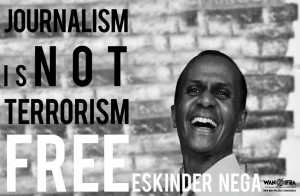ጀርመን ገብተን፣በራሂን ወንዝ ዋኝተን፣ ኔዘርላንድ ገብተን፣ በአምስተል ወንዝ ግብርውሀ ወጥተን፣ ኦስሎ ገብተን፣ በኖቬል ሽልማት-ቤት ፊትለፊት ፎቶ ተነሥተን፣የሁለት ሰንበት ዙረታችንን አጠናቅቀን ለሚወደንና ለምንወደው ህዝባችን ጥቅም ስንል ወደ ሸገር ተመልሰናል፡፡ በተመልስንበትም ቀን ስኮትላንድ ከታላቋ ብሪታኒያ ጋር የመሠረተችውን ትዳር ማደሷን አወጀች፡፡
ፍቅር ያሸንፋል ይሉሀል ይህ ነው፡፡
እስቲ በስማም ብየ፣ ዝናሽን ልናገር
የቀሚስ ለባሾች፣ የነዋላስ አገር
አንዳንዴ ሳስበው፣እናንተ የዓለም ጨው ናችሁ የሚለው የመሲሕ ቃል የተፈጸመው በስኮቶች ይመስለኛል፡፡አሁን የምንኖርበትን ዘበናይ ዓለም በራሳቸው አምሳል ጠፍጥፈው የፈጠሩት ስኮቶች ናቸው፡፡ምነው ወዳጄ ለሙገሳም ለከት አለው፣ ትንሽ አላጋነንከውም የሚለኝ ሰው ካለ <How the Scots invented the modern world››የሚለውን የአርተር ሄርማንን መጽሀፍ እጋብዘዋለሁ፡፡
የሰው ልጅን ህይወት ታምራዊ በሆነ መንገድ የቀየሩ ብዙ የሳይንስና ቴክኖሎጂ ግኝቶች የስኮት አእምሮ ውጤት ናቸው፡፡
አንች ወዲህ ማዶ፣
እኔ ወዲህ ማዶ
አንገናኝም ወይ ተራራው ተንዶ
የሚል የጨነቀው የድሮ አፍቃሪ የዘፈነው ዘፈን ትዝ ይላችኋል?፡፡ተራራው ሳይናድ ፣ወድያ ማዶ የምትኖር ቆንጆ ወዲህ ማዶ ካለው ወዳጅዋ ጋር እንድትገናኝ ያደረገው የስልክ ፈጣሪ እስክንድር ቤል ስኮቴ ነው፡፡እነ ቲቪ፣እነ የእንፋሎት መርከብ እነ ብስክሌት፣እነ መኪና ጎማ-ከብዙ በጥቂቱ የስኮት አእምሮ ውጤቶች ናቸው፡፡
የዘመናዊ ፍልስፍና ፈጣሪ ዳዊት ሂውም፣የነጻ ገበያ ኢኮኖሚ ሊቅ አዳም ስሚዝም እዚያው ናቸው፡፡
ስኮቶች በኢትዮጵያ ላይም አሻራቸውን ትተዋል፡፡
የአባይን መፍለቂያ ለመጀመርያ ጊዜ ያገኘው አንድ ስሙ ያልታወቀ፣የወይጦ አሣ አጥማጅ መሆን አለበት፡፡ ለሁለተኛ ጊዜ ያሠሠው ግን የስኮትላንዱ ተወላጅ ያቆብ (James)ብሩስ ነው፡፡በዘመነ መሳፍነት ዋዜማ ላይ ኢትዮጵያ ይልቁንም ጎንደር ምን እንደምትመስል የምናውቀው፣ጀምስ ብሩስ በጻፈልን፣ባለ አምስት ጥራዝ ማስታወሻ ነው፡፡
ባገራችን ባህላዊ ፍልስፍና ሱሪ የጀግንነት መለኪያ ተደርጎ ይወሰዳል፡፡‹‹እገሌን ብፈራው ሱሪ አልታጠቅሁማ›› ይላሉ አባቶቻችን ሲፎክሩ፡፡እድሜ ለስኮቶች፣ቀሚስ የጀግነነት ምልክት ሆነ፡፡
ስኮቶች፣የበደልና የጭቆና ታሪክ ማሳለፋቸውን ይናገራሉ፡፡ተነጥለው ጎጆ የመቀለስ አቅሙም ነበራቸው፡፡ግን በመከባበር ላይ የተመሰረት አንድነት መምረጣቸው ጀግንነት ነው እላለሁ፡፡ አርአያቸውን በልቦናችን ያሳድረው ከማለት በቀር ምን ይባላል?
Archive | September 19, 2014
the Proclamation undermine international protections on freedom of expression
 The anti-Terror Proclamation in Ethiopia, Amnesty International warns that the law could restrict freedom of expression, peaceful assembly and the right to fair trial, with serious implications in the elections. Although the Ethiopian government faces legitimate security concerns, any anti-terror legislation must be in accordance with international human rights standards. “The Government of Ethiopia has a history of stifling dissent and it is worrying that this law now risks further violating Ethiopia’s obligations under international human rights law,” said Erwin van der Borght, Amnesty International’s Africa programme director. “The Anti-Terror Proclamation is expected to provide Ethiopian authorities with unnecessarily far reaching powers which could lead to further arbitrary arrests”. Based on the law, “acts of terrorism” are vaguely defined and could encompass the legitimate expression of political dissent. The law defines “acts of terrorism” as including damage to property and disruption to any public service, for which an individual could be sentenced to 15 years in prison or even the death penalty. Thousands of protesters, political party leaders, journalists and human rights defenders were arrested and detained following the disputed previous elections in which the ruling Ethiopian People’s Revolutionary Democratic Front (EPRDF) retained political power.
The anti-Terror Proclamation in Ethiopia, Amnesty International warns that the law could restrict freedom of expression, peaceful assembly and the right to fair trial, with serious implications in the elections. Although the Ethiopian government faces legitimate security concerns, any anti-terror legislation must be in accordance with international human rights standards. “The Government of Ethiopia has a history of stifling dissent and it is worrying that this law now risks further violating Ethiopia’s obligations under international human rights law,” said Erwin van der Borght, Amnesty International’s Africa programme director. “The Anti-Terror Proclamation is expected to provide Ethiopian authorities with unnecessarily far reaching powers which could lead to further arbitrary arrests”. Based on the law, “acts of terrorism” are vaguely defined and could encompass the legitimate expression of political dissent. The law defines “acts of terrorism” as including damage to property and disruption to any public service, for which an individual could be sentenced to 15 years in prison or even the death penalty. Thousands of protesters, political party leaders, journalists and human rights defenders were arrested and detained following the disputed previous elections in which the ruling Ethiopian People’s Revolutionary Democratic Front (EPRDF) retained political power.
As reviewed the 2009 Anti-Terrorism Proclamation and find that a number of the sections of the Proclamation undermine international protections on freedom of expression. Of particular concern is the broad definition of terrorism, which would appear to apply to many legitimate acts of expression; the undermining of protection of journalists sources including by surveillance and an excessive duty to cooperate and provide information; and vaguely defined provisions on “encouraging” terrorism that would criminalise the legitimate exercise of freedom of expression and have a real chilling effect on debate on matters of public interest.
1. Anti-Terrorism and Free Expression
The protection of freedom of expression in the context of combating terrorism has been a matter of significant debate for a number of years, especially since the events of 11 September 2001. It is well understood that freedom of expression may be restricted in order to protect public order and national security and recognised that the State has a duty to protect its people from terrorist threats. However, we are concerned in the use of anti-terror laws to stifle legitimate political and social protest. Anti-terrorist laws trigger executive powers that are very restrictive on human rights, often with reduced judicial oversight.
2. Definition of Terrorism
As a preliminary matter, the definition of terrorism set out in the Proclamation is both overly broad and vague. Under international human rights law, criminal offences and any executive measures that interfere with rights such as free assembly, expression and privacy must be clearly and narrowly defined by law, serve a legitimate aim and be “necessary” in a democratic society. We believe that the definition of “terrorism” in the Proclamation fails this test, and we urge serious reconsideration of the definition. Under Article 3(6) of the Proclamation, a terrorist act would include anything that causes “serious interference or disruption of any public service”. It applies to many types of legitimate, non-violent protest and dissent. This can include public transport or communications “systems established to give public service”.
3. Protection of sources and information The Proclamation sets out a series of powers for government bodies and duties for private individuals including the media to facilitate the collection of information about terrorist offenses. These sections collectively raise serious issues about the right of journalists’ to protect their confidential sources and the role of the media in acting as an independent investigator in society.
• Article 12, “Failure to Disclose Terrorist Acts”, requires all persons, including the media, to provide information or evidence relating a terrorist act.
4. Criminalizing “Encouraging” Speech Article 6 of the Proclamation, entitled “Encouragement of Terrorism” sets out broad prohibitions on speech directly or indirectly “encouraging” or “inducing” terrorist acts. There is no definition of encouragement. The introduction of these penalties is likely to result in the criminalization of perfectly lawful statements and the chilling of much political speech and debate. It is very clear that these prohibitions violate the right to freedom of expression. The offences of “direct or indirect encouragement or other inducement” are extraordinarily broad and vague offences that fail the limitations for restrictions on rights required under international human rights law.
The Proclamation seriously undermines freedom of expression rights in a manner that is unlikely to improve security. It gives broad and vaguely defined powers to authorities to criminalize speech that is not directly inciting terrorism and undermines the media’s fundamental right to protection of sources. In doing so, it violates Ethiopia’s obligations under international law. It should be amended to fully recognise free expression rights under international and regional human rights law.
The human rights experts reiterated their call on the Ethiopian authorities to respect individuals’ fundamental rights and to apply anti-terrorism legislation cautiously and in accordance with Ethiopia’s international human rights obligations.
sources – http://www.amnesty.org/en/for-media/press-releases/ethiopia-new-anti-terrorism-proclamation-jeopardizes-freedom-expression-
